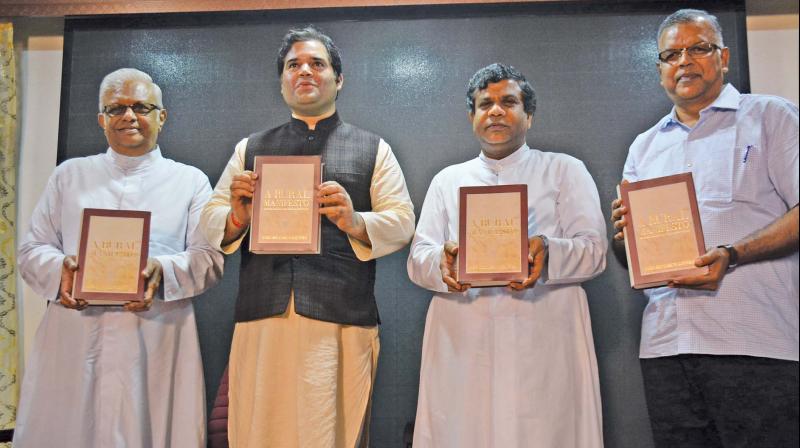Varun Gandhi: Localise decentralised schemes implementation
His focus has been to shine a bright light on the complexity associated with marginal farmers living in rural India.

Chennai: Sultanpur BJP MP Varun Gandhi has advocated providing greater subsidies on the purchase of agricultural equipment, fertilisers and pesticides, and said medical insurance coverage could be expanded through the Rashtriya Swasthya Bima Yojana (RSBY). He also batted for 'localising' decentralised implementation of developmental programmes including those focusing on the rural areas.
"We need to supplant, compliment besides add to existing measures which may be good by localised decentralised measures which are partners of development … in fact, my book is basically a journey throughout India and entirely about pro decentralisation," Varun said on Thursday.
Speaking about his new book, titled "A Rural Manifesto: Realising India's Future Through Her Villages," at a function held at Loyola College here, Varun suggested solutions to address the concerns of rural India.
Later, while interacting with the audience, he remarked, if policies are made without lot of consultations with beneficiaries or end users of that policy, there obviously will be certain gaps during implementation. "MNREGA, Ujjwala Yojana and Ayushman Bharat, are all good schemes, positive and good for the country, and fill a need but the problems come as scheme implementation or roll out is completely centralised. For instance, Ujjwala Yojana provides a gas cylinder but in almost every village we have stray cattle or oxen. If a gobar gas plant is established to generate methane gas locally - which is cheap - then it could help to meet almost 40 per cent of local needs," he emphasised.
His focus has been to shine a bright light on the complexity associated with marginal farmers living in rural India. "My book focuses on the impact rising prices of agricultural inputs, availability of water, soil suitability and pest management, highlighting the narrow window of economic benefit for the marginal farmer. It explores solutions to improving the economic viability of marginal farming and bolstering non-farm income. Even more so, we need a national conversation on rural distress," he said.

